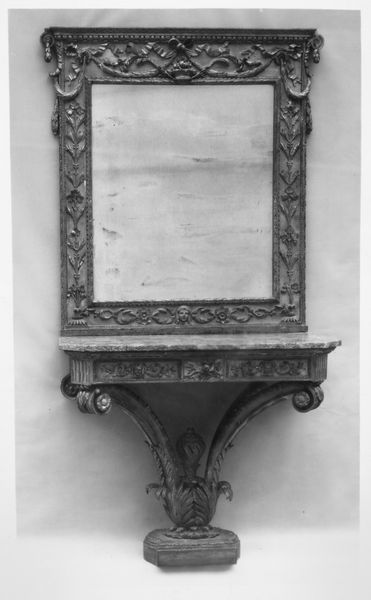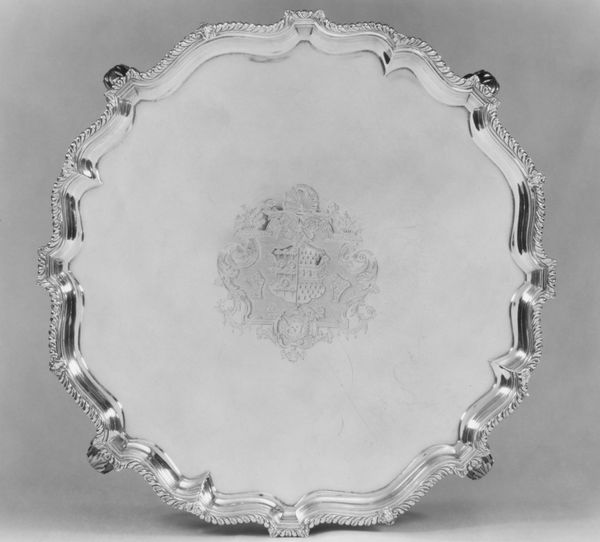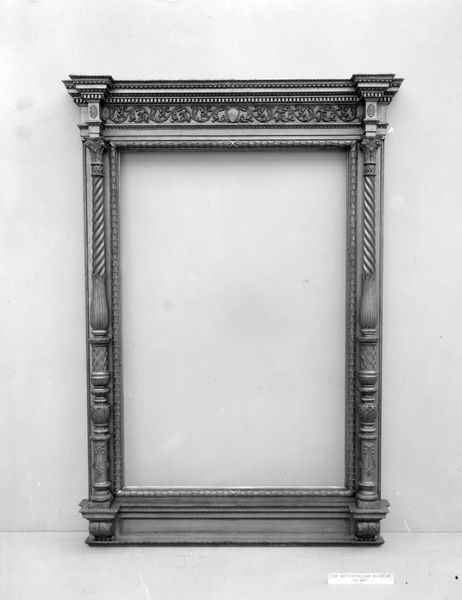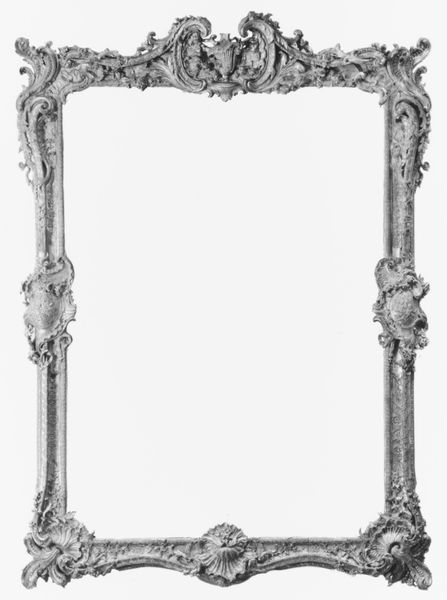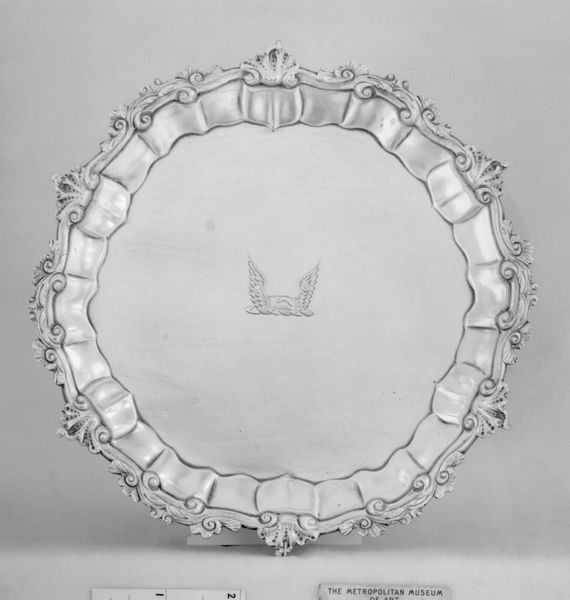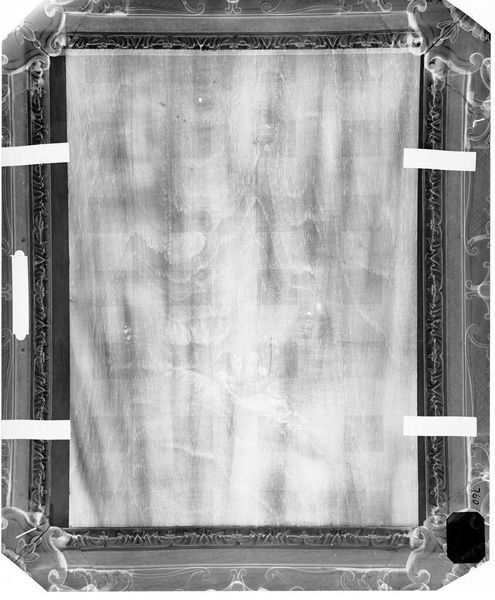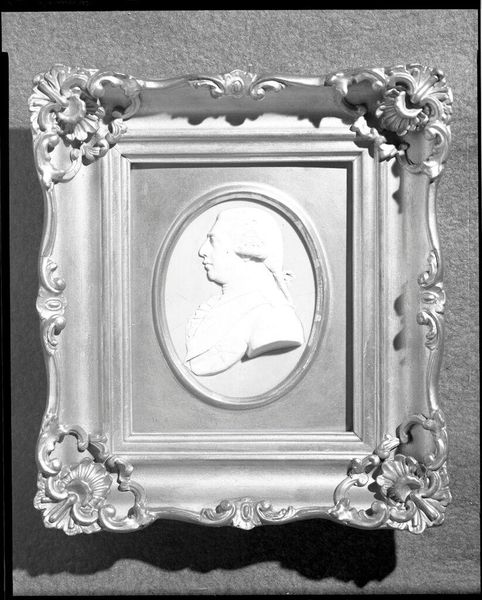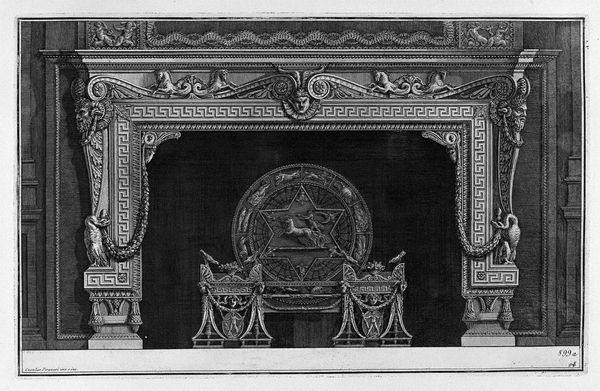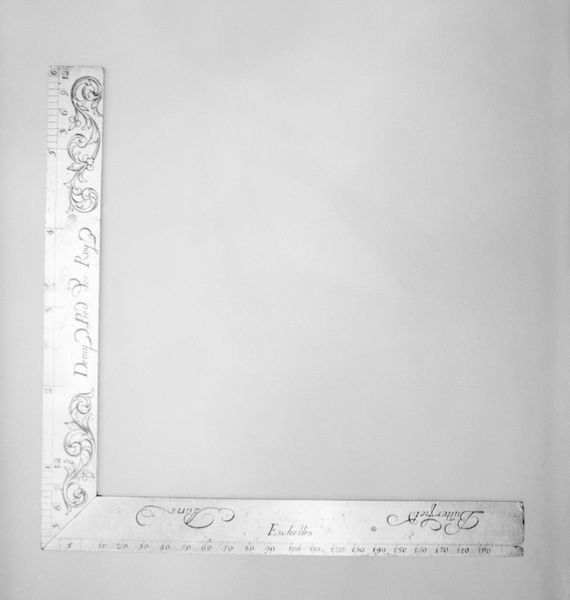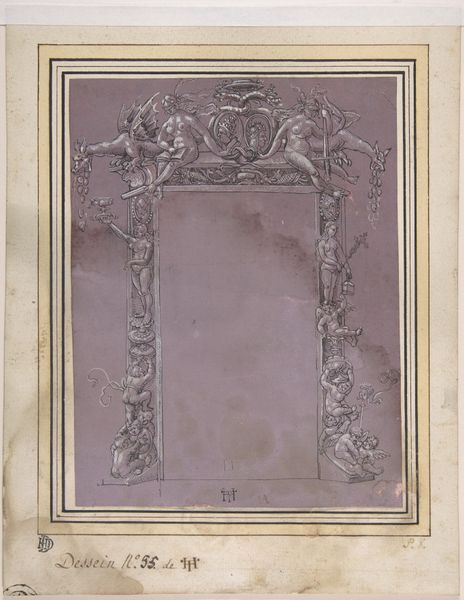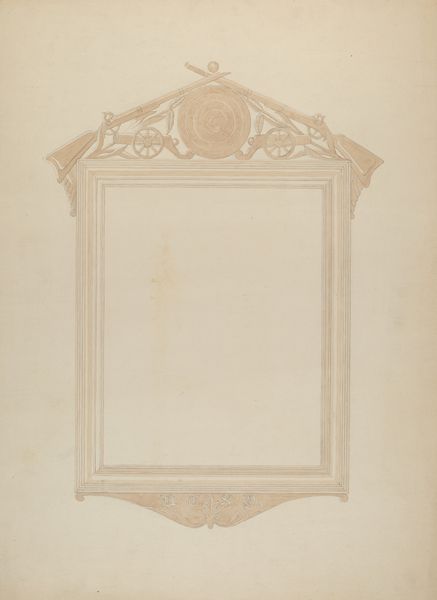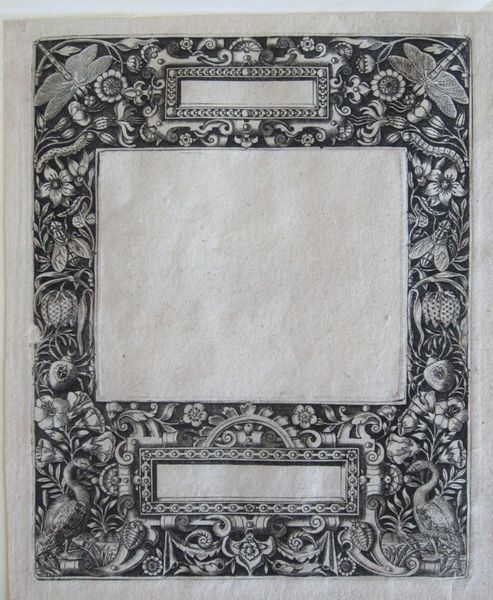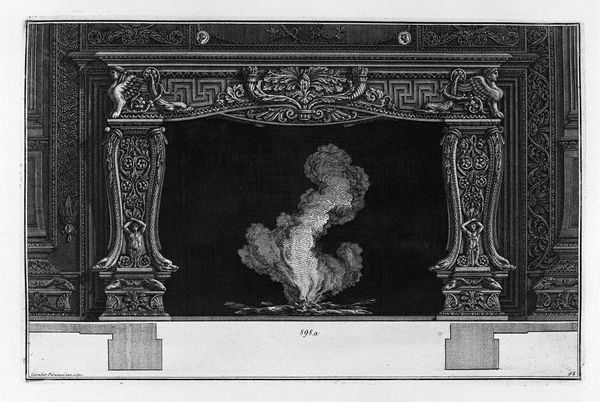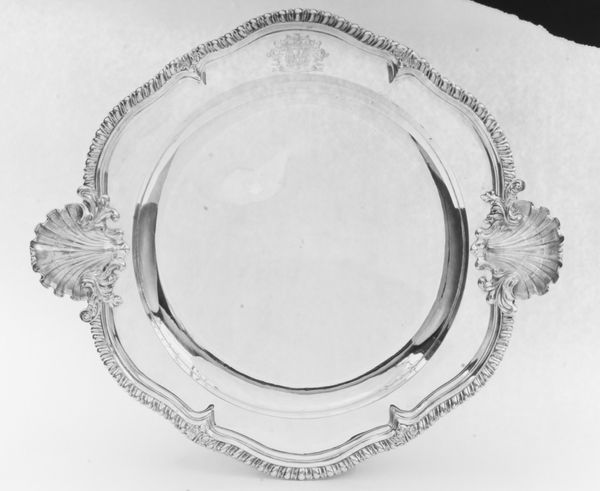
tempera, relief, textile, sculpture, architecture
#
tempera
#
sculpture
#
relief
#
textile
#
sculpture
#
decorative-art
#
architecture
#
rococo
Dimensions: 10 ft. × 10 ft. 5 in. (304.8 × 317.5 cm)
Copyright: Public Domain
Jacques Germain Soufflot designed this mirror surround with vases in eighteenth-century France. Soufflot was a key figure in the French neoclassical movement, which looked back to ancient Greece and Rome for inspiration. This design reflects the values of the Enlightenment, emphasizing reason, order, and balance. The symmetrical arrangement, classical motifs, and restrained ornamentation are all hallmarks of this style. But this aesthetic was not politically neutral: Neoclassicism was often associated with the aristocracy and the institutions of power they supported. The mirror itself, as a symbol of vanity and self-reflection, speaks to the culture of the court. Understanding this design requires us to look beyond its surface beauty and to consider the social and political context in which it was created. Art historians use a range of resources, from architectural treatises to social histories, to shed light on the complex relationship between art and society. By doing so, we can gain a deeper appreciation of the mirror's historical significance.
Comments
No comments
Be the first to comment and join the conversation on the ultimate creative platform.
